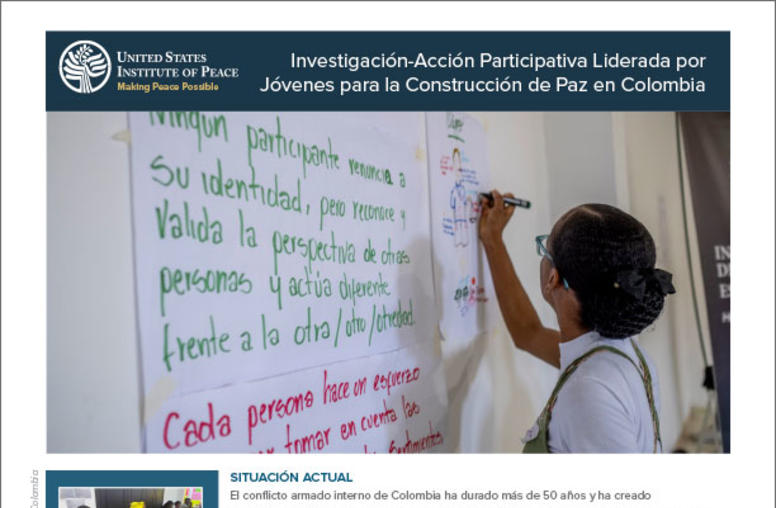Colombian Human Rights Leaders Protect Their Peace
Human rights prize winners discuss consolidating the 2016 peace agreement amid growing security threats
Since the agreement with the FARC was signed in 2016, human rights leaders in Colombia have been operating in an increasingly high-risk climate. Just last month, the U.N. released a report detailing the elevated numbers of threats and assassinations targeting human rights leaders throughout 2019—particularly in rural areas and against those advocating on behalf of women and ethnic groups such as indigenous and Afro-descendant communities. But despite this growing security risk, the winners of the 2019 National Prize for the Defense of Human Rights have worked tirelessly to advance and protect core tenets of the peace agreement in their communities.
Organized by the Swedish humanitarian agency Diakonia and the ACT Church of Sweden, the Colombian National Prize for the Defense of Human Rights honors social leaders as they continue to defend their communities’ right to security, land, education, health, reparations, and access to justice under the 2016 deal.
On February 24, the U.S. Institute of Peace, the Washington Office on Latin America, and the Latin America Working Group Education Fund hosted the winners of the 2019 awards. These leaders discussed how they engage diverse social sectors as well as local, regional, and national institutions and authorities to promote peace and ensure democratic spaces for civic engagement.
The event was streamed live. To continue the conversation on Twitter, use #ColombiaPeaceForum.
Speakers
Clemencia Carabalí
2019 National Prize for the Defense of Human Rights “Defender of the Year” Award Winner; Director, Association of Afro-descendant Women of Norte del Cauca
Ricardo Esquivia
2019 National Prize for the Defense of Human Rights “Lifetime Defender” Award Winner;
Executive Director, Sembrandopaz
Lisa Haugaard
Co-Director, Latin America Working Group Education Fund;
Juror, National Prize for the Defense of Human Rights
Annye Páez Martinez
Representative of the Rural Farms Association of Cimitarra River Valley; 2019 National Prize for the Collective Experience or Process of the Year
Marco Romero
2019 National Prize for the Defense of Human Rights “Collective Process of the Year” Award Winner; Director, Consultoría para los Derechos Humanos y el Desplazamiento
Gimena Sánchez- Garzoli
Director for the Andes, Washington Office on Latin America;
Juror, National Prize for the Defense of Human Rights
Keith Mines, moderator
Senior Advisor, Colombia and Venezuela, U.S. Institute of Peace


